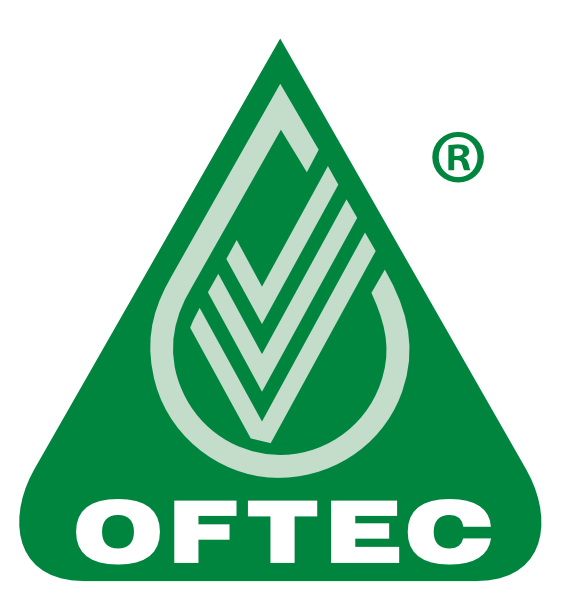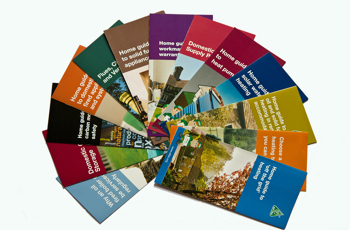Home guide to liquid and solid fuel heating in rented accommodation
The information on this page provides general guidance; your local OFTEC registered technician will be able to provide further advice on your particular circumstances.
In 2021, oil or kerosene continues to be the most widely used fuel in off-grid homes. However, to reflect that a renewable liquid fuel, such as HVO may soon be available (see our future heating section) we have used the term liquid fuel in this guide to include both oil and low carbon liquid fuels.
The correct installation and maintenance of liquid and solid fuel-fired heating equipment is essential for efficient, safe performance. This home guide provides guidance for tenants, landlords and letting agents on the installation and care of this equipment and why carbon monoxide detectors should be fitted in rented accommodation.
Is there a requirement for landlord safety certificates?
Unlike for gas appliances, there is no legal requirement in the United Kingdom or the Republic of Ireland for a landlord to obtain a landlord safety certificate for liquid or solid fuel heating equipment installed within a let property. However, all appliances still need to be installed in accordance with regional building regulations and should receive appropriate periodic servicing. In both cases this should only be carried out by a competent person.
We recommend that liquid and solid fuel-fired heating systems are serviced at least annually by an OFTEC registered technician to ensure that they are operating safely. In liquid fuel heated homes, the boiler, fuel storage tank and pipework should be checked over regularly and any faults reported if they can’t easily be repaired. Solid fuel heating - including open fires - also needs periodic maintenance and flues/chimneys will require sweeping both for safety and insurance purposes.
Regular maintenance will also help to keep heating appliances operating at peak performance which will reduce fuel bills, minimise pollution, save on costly call out fees for breakdown repairs and reduce the risk of carbon monoxide poisoning.
What paperwork will be issued for installations or servicing?
During a servicing visit an OFTEC registered technician will complete a CD/11 (liquid fuel) or CD/81 (solid fuel) service report form. When a new installation is done, the installer will complete a CD/10 (liquid fuel) or CD/80 (solid fuel) and notify the local building control body so that a works notification certificate can be issued (see why use an OFTEC registered technician, below). This notification is optional in Scotland and Ireland. Where tenancy agreements place the responsibility of appliance maintenance on the tenant, we recommend that tenants use an OFTEC registered technician who can provide a copy of the appropriate OFTEC service report form to demonstrate that they have met the terms of their tenancy agreement.
When to fit carbon monoxide detectors?
All fossil fuel burning appliances, including gas or liquid fuel-fired boilers, open fires or woodburning stoves produce carbon monoxide. Occupants are at risk of exposure to this dangerous gas if appliances are incorrectly installed or maintained. Carbon monoxide is a poisonous gas that is produced by the incorrect burning of a fossil fuel. It is odourless, colourless and tasteless, making it very difficult to detect. Inhaling carbon monoxide can be fatal so it’s important to spot the early danger signs of possible poisoning:
- Nausea
- Headaches
- Dizziness
- Confusion
- Tiredness
- Vomiting
In all regions, a carbon monoxide detector (performing to British standard BS EN 50291) should be fitted in the same room as any new or replacement heating appliance (such as a boiler or stove), which is inside a building (including non-habitable areas) and is not designed solely for cooking purposes. Building regulations in Scotland and the Republic of Ireland require additional detectors in high risk areas, such as bedrooms and principle habitable rooms through which a flue may pass.
Landlords in Scotland must fit carbon monoxide detectors in houses they rent privately to tenants, if they contain appliances such as boilers or wood burning stoves. Only appliances used solely for cooking purposes are excluded. A similar requirement exists for landlords in England, but only for solid fuel appliances. However, to ensure the safety of occupants, OFTEC recommends that this condition is applied to all fossil fuel burning appliances in rented accommodation.
Although useful as a warning device, carbon monoxide detectors must not be considered as a substitute for scheduled periodic maintenance. The detector should also be checked regularly in line with the manufacturer’s instructions and replaced at the end of its service life.
Please wait ...


